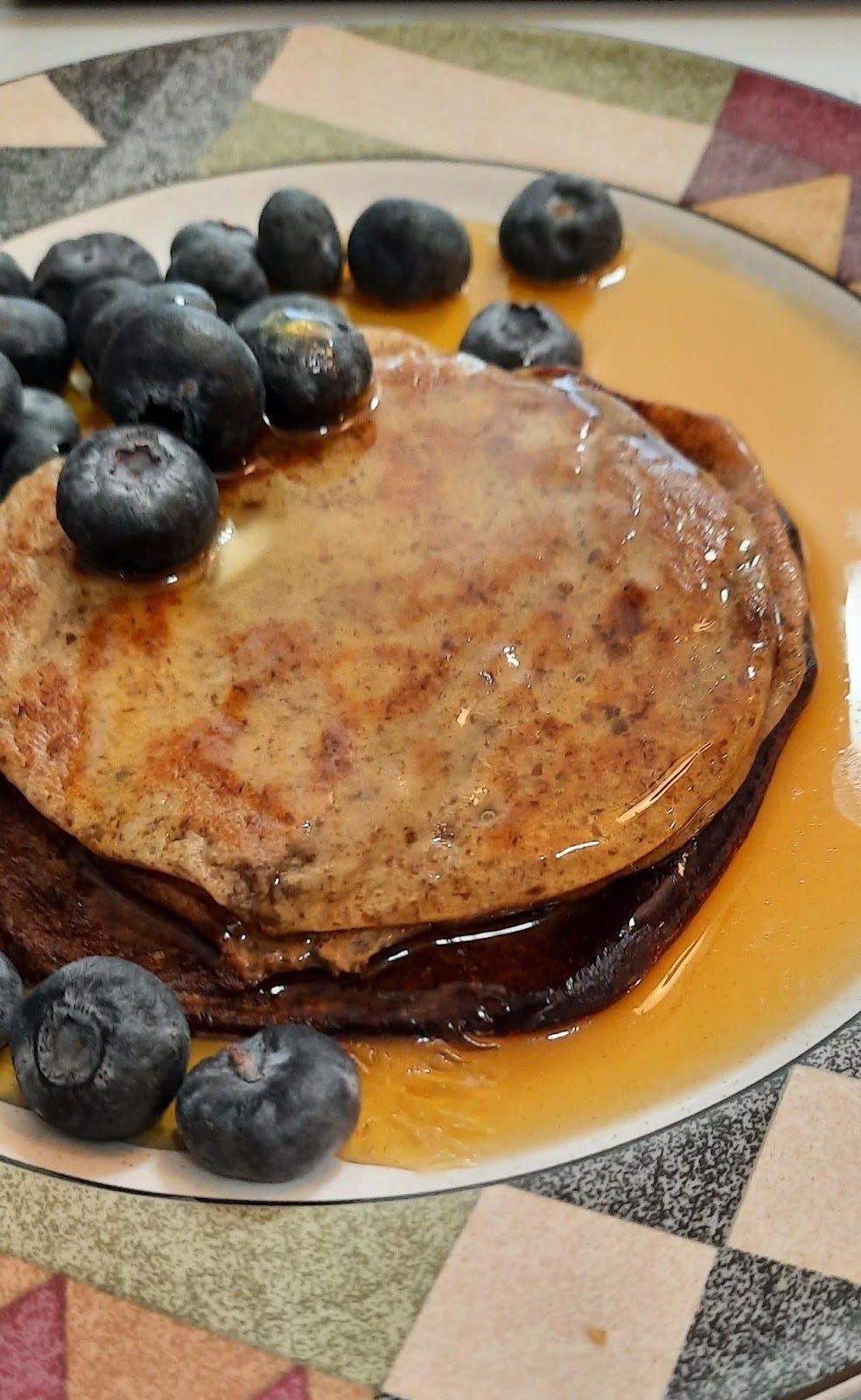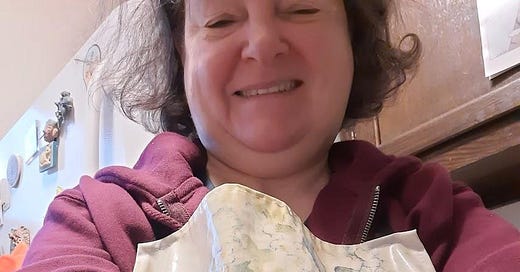For 2024 Alicia Kennedy is running a food Centered book club. The first book for January and February was Rebecca May Johnson’s Small Fires: An Epic in the Kitchen, which I read and wrote about at the end of 2022. For the book club I recently reread some of the book and shared my comments, which are also repeated below. Some of the themes from my 2022 reading came up again on the second read through.
This is a great book, comparing home cooking recipes with literature especially the Odyssey, with Rebecca May Johnson was studying at university. I love the idea of the recipe as literature which lead us into a discussion on copyright. Was Odysseus copyrighted? I always assumed that his story was told verbally, fire place to fire place until one day “Homer” wrote it down. I feel the Odyssey was an original folk poem, and like folk music, the story built on the music of the past. Recipes, knitting patterns, music are slippery literature because it is easy to change them to make them yours.
The first half of the book has two themes that stand out for me: the apron and thinking in the kitchen. These both relate to my career as a food scientist, which extends beyond the lab and into my kitchen. I have always been interested in what happens when I cook and how the food and ingredients change during my manipulations. I love making connections between my science and my cooking practice. For example, tomato sauce going orange when you blend the tomatoes and onions because of anthocyanins in the onions are reacting with the lycopene in the tomatoes.
Working in a science lab, I have a uniform of lab coat and safety glasses. Putting these on told me I was in the lab. In fact, I found when I was not wearing safety glasses I felt undressed and unprepared. Until reading Small Fires, I never considered the apron in the same way. I certainly had not considered wearing the apron as sexy or erotic. Unlike Rebecca May Johnson, I preferred a hard, plastic apron, that stands away from my body. In fact, my favorite apron has a giant cat on it. A gift from my mum. Until reading Small Fires, I only wore my apron when I knew I was going to be messy, for example anything involving chocolate or flour.
After first reading Small Fires, in Dec 2022, I started being more deliberate about wearing my apron every time I cooked. However, in Oct 2023, there was a fire in my apartment building which damaged all my belongings especially in the kitchen where the ceiling fell down. I still haven’t replaced my apron. I hadn’t realized this lack until rereading Small Fires at the beginning of this year. Do I need an apron? Perhaps the kitchen is an extension of myself and that’s why I don’t feel it necessary to wear a uniform when cooking?
The reporting of repetitively cooking the same recipe and the idea of “refusing” the recipe is fascinating to me. It has been a long time since I have religiously followed a recipe as written. I typically refuse to put salt in recipes and that’s before I change half the ingredients to suit my tastes. Writing down my cooking experience rarely happens. I could say, despite my scientific training. Unrelated to my scientific training more likely. I have been baking since I was eight and cooking since I was a teen which I think means I don’t even realize that I am cooking. Muscle memory and routines, and the right mood makes cooking like a meditation. Sometimes I cook because I need to think through a problem and the rote of chopping vegetables and mixing sauces allows my mind to ponder on an outside problem. This worked for research problems too. If I was struggling with writing about my science, I would go into the lab and run my experiments, returning to the world with my writing sorted.
The second part of the book to me, and this blew my mind, was about play. Much to the disgust of my more serious academic colleagues, I called being in the lab “play” and I had never extended this to what I did in the kitchen or the rest of my life. When I read this book in 2023, I just finished the first draft of my own book and needed a break before editing. So I took December 2022 to play; mostly with my writing but also with my knitting and a little in the kitchen.
I play with my sourdough. I first started baking sourdough bread in 1999 but I had no idea what I was doing and due to busyness and ill-health let my sourdough die in 2010. Late in the pandemic lockdowns I took a class on improvising your sourdough baking. This was wonderful for me as the intense competitive precise sourdough world had no appeal whatsoever. Thus, I have learned to read my doughs and batters in the same way I read books, and read my knitting.

I also discussed play with a friend who is a musician who studies the theory of play and she recommended reading Free Play: Improvisation in Life and Art Stephen Nachmanovitch which was a great recommendation. Play theory is so fascinating. Why do we play? Does playing have rules?
Do you like to play? Perhaps like me you like to play in the kitchen. Let me know in the comments.
I love the idea of a recipe having a story and a past lost in someone’s belly. Of course the original recipe was eaten and so it is today. The recipe being a literary epic like that of the Odyssey turns the tables on my perception of history. Food and textiles do not survive time except in memory. History reports the story of the powerful not the story of every day. Thus, we hear about kings and princes and occasionally queens and princesses and we learn about the lives of the lords and ladies and rarely hear about the seamstress or the baker.
I am currently obsessed with Time Team which explores British history through archeological digs. They mostly find villas and grand houses because they were made of stone and left more signs in the ground. Timber houses leave very little to be found as wood decomposes. Iron age round houses are found through post holes and ditches. Written history comes from those that can write or have people write for them. This means having lots of money and time to learn to read and write, which most people didn’t have.





I love the cat apron--great pic! And so glad you enjoyed the Nachmanovitch book <3